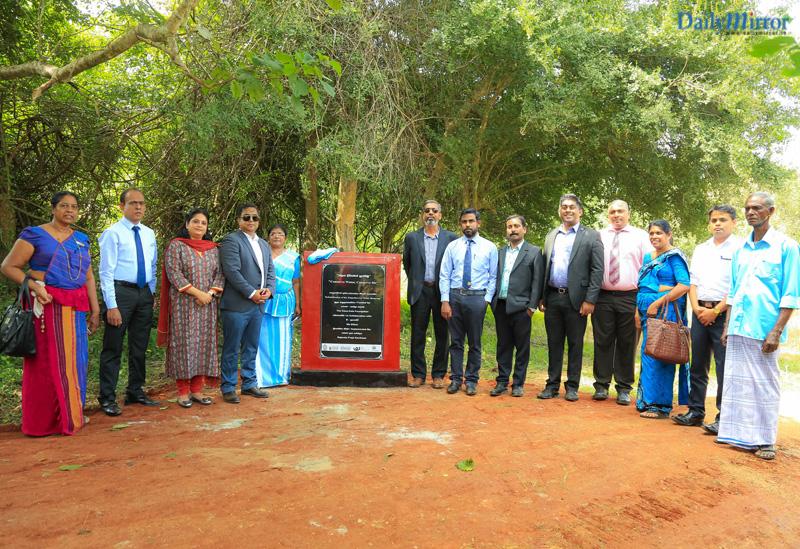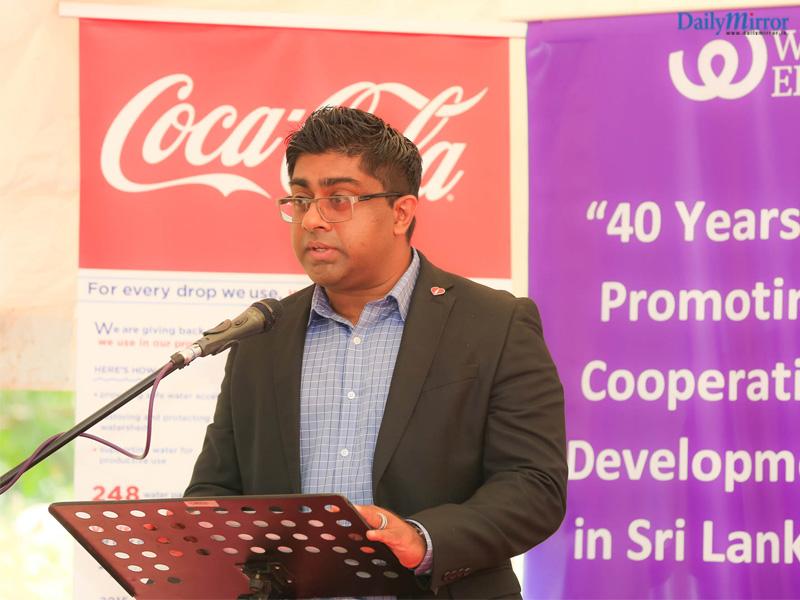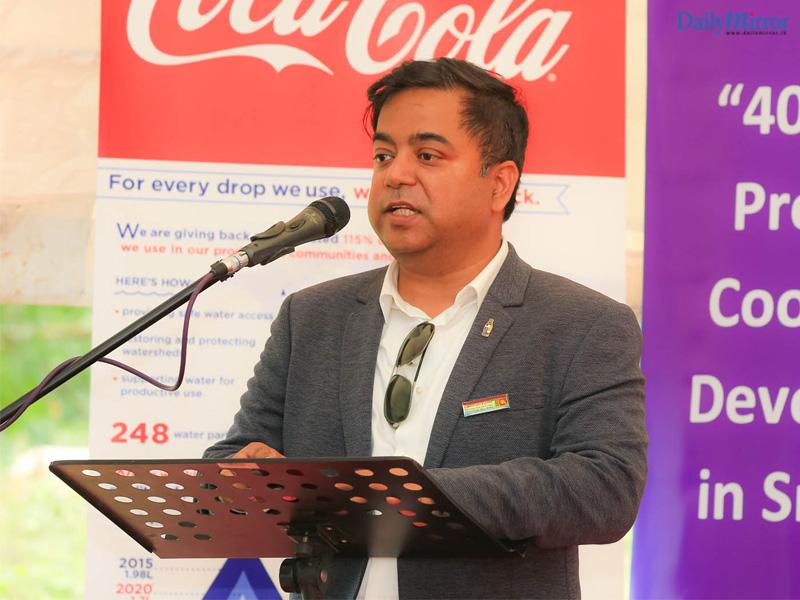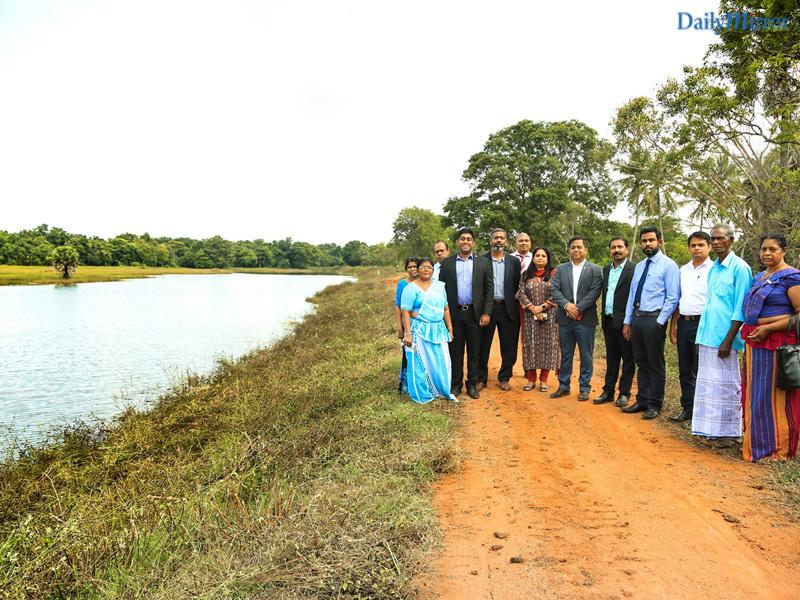Reply To:
Name - Reply Comment

Restoring the marvel of ancient engineering in Sri Lanka, Coca-Cola Beverages Sri Lanka Ltd. (CCBSL) with the funding support of The Coca-Cola Foundation, and under its commitment to water stewardship, took the lead to rejuvenate two key water reservoirs in the marginalized village of Thammanawa in Anuradhapura. Traditionally, ancient Lankan kings built reservoirs to bring prosperity to the people. This initiative by Coca-Cola too will benefit communities living in close proximity to the vital water source and enhance their livelihoods. Easy access to this newly refurbished arterial water source opens a world of opportunities for these marginalized communities. Apart from improving irrigated and quality water availability, the scope of this notable project included social and economic empowerment of women in Thammannawa village. For this project, Coca-Cola partnered with We Effect (a Swedish International Development Organization in Sri Lanka since the 1970s) and implementing partner, Rajarata Praja Kendraya (RPK), a women-focused organization working in the Anuradhapura district, with more than 30 years’ experience in social mobilization, formation of Civil Society Organizations, linking public support services and working on reducing gender based violence.
Before Coca-Cola embarked on this project, the water reservoir was leaking and algae infested swamp. In the past, this water reservoir used to provide access to safe water and the most important source of income as irrigation for the rice paddies surrounding the village. This allowed the families to manage two harvesting seasons and two sets of incomes annually. Eventually, with the reservoir falling into disrepair, only about 20 percent of the village’s arable land was being cultivated, coupled with a serious lack of safe, quality water, which led to the increased incidence of kidney disease among villagers. The second water reservoir, Elapathwewa, was also abandoned due to drought for years.
In keeping with the ancient tradition of Lankan kings building reservoirs, the rehabilitation of the damaged 100-year-old Thammanawa Water reservoir by Coca-Cola and its project partners; We Effect and RPK, has empowered villagers to restore uncultivated paddy lands and home gardens for all seasons and to double their harvests. Now that both reservoirs are restored, a total of 136 families have benefitted from this project.
As part of the project, a 5000 liters-per-day Reverse Osmosis plant was set up as a cooperative business venture, which will be managed by the new village Cooperative society.

Interestingly, in the restoration of the water reservoirs lay the opportunity for female empowerment, a mandate that Coca-Cola in Sri Lanka also adopted in 2012. The lack of clean water had wider repercussions on the community, such as impacting the education level of women and girls in the village as they had to spend many hours daily fetching water from remote water sources. The village already faces gender-related issues, with women confined to household chores and young girls also expected to follow the same path, with little access to education or achieving financial independence. However, through this project, over 300 women have been mobilized to form their own Cooperative Society and more than 100 members of this women-led agricultural cooperative were trained to become entrepreneurs to create new avenues of earning incomes.
The villagers were also familiarized with climate change and its impact on their livelihoods through the linkages established with the Divisional Disaster Management Centre (DDMC). With the support of DDMC officers, training will be conducted and the Women’s Cooperative and Farmer Organization will be supported to prepare and implement DRR plans to mitigate negative impacts.
Speaking at the inauguration event, Lakshan Madurasinghe – Director, Public Affairs, Communications and Sustainability Coca-Cola Beverages Sri Lanka Ltd., said, “Water is central to the health and well-being of communities and for sustaining livelihoods, which is why Coca-Cola has conducted far-reaching water stewardship projects across Sri Lanka, on many occasions partnering government bodies, NGOs and other institutions for a wider impact. In this project, we were pleased to join hands with We Effect, Rajarata Praja Kendriya and the village cooperative societies to transform the lives of people in this remote village in Anuradhapura.”
Adding further, Pankaj Sinha - Managing Director, Coca-Cola Sri Lanka Private Ltd., stated, “Water is the primary ingredient in our beverages and therefore we have a responsibility to respect and protect water resources. In Sri Lanka, we help provide communities with access to safe, clean water through projects with our system, civil society partners and The Coca-Cola Foundation. We wish the village of Thammanawa the very best.”
Mayooran Thevasigamany - Country Director, We Effect Sri Lanka, said, “We Effect has invested in promoting an enabling environment for cooperative development at the grassroots which is empowering these bodies to take ownership of projects such as the reverse osmosis plant and to be responsible for its maintenance. We are proud to support the main partner in the project, Coca Cola, to rejuvenate much-needed safe and hygienic water sources for the villagers to enhance their quality of life and help improve their prospects.”
A villager from Thammanawa speaking on behalf of the rest enthused, “Farmers in the village struggled to cultivate for more than two years due to lack of water, but now we can look forward to cultivation across all two seasons. This will enhance prosperity for the village and help us fulfill our aspirations for our families. We are grateful to Coca-Cola and other partners for understanding the hardships we faced and for alleviating the same.”
Coca-Cola recognizes that water is essential to the health of communities and their prosperity and has embarked on a variety of initiatives in Sri Lanka and around the world, to bring clean water to communities and increase public awareness about the importance of conserving water.


